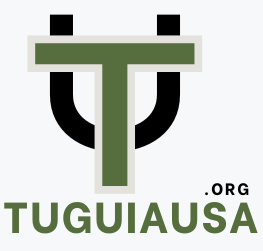Understanding the Role of Business Brokers in Charlotte NC
Business brokers play a crucial part in the buying and selling of businesses in Charlotte, NC. They act as intermediaries, helping buyers and sellers navigate the complex process of business transactions. Choosing the right business broker can make a significant difference in your success.
What Do Business Brokers Do?
Business brokers assist in various ways, including:
- Listing businesses for sale
- Connecting buyers with sellers
- Negotiating deals
- Providing market insights
- Handling paperwork and legal requirements
How to Choose the Right Business Broker
When selecting a business broker in Charlotte, consider the following:
- Experience in the local market
- Reputation and reviews from past clients
- Knowledge of your specific industry
Benefits of Using a Business Broker
Using a business broker offers several advantages:
- Access to a wider range of Charlotte NC businesses for sale
- Professional negotiation skills
- Assistance with valuation and pricing
Working with a skilled business broker can help you avoid common mistakes and streamline the buying process.
In summary, business brokers Charlotte NC, are essential for anyone looking to buy or sell a business. They provide valuable support and expertise, making the journey smoother and more successful.
Identifying Profitable Business Opportunities
Researching Market Trends in Charlotte
To find a successful business to buy, it’s important to understand what is happening in the Charlotte market. Look for industries that are growing and have a strong customer base. Here are some tips to help you:
- Check local news for business updates.
- Use online tools to see which businesses are popular.
- Talk to local business owners to get their insights.
Evaluating Business Financials
When you find a business you like, you need to look at its money matters. This means checking:
- Profit and loss statements
- Balance sheets
- Cash flow reports
These documents will help you see if the business is making money or losing it.
Assessing Business Growth Potential
Not all businesses are the same. Some have more chances to grow than others. To figure this out, consider:
- The current market demand for the business’s products or services.
- The competition in the area.
- Future trends that could affect the business.
Finding the right business opportunity takes time and effort, but with the right research and evaluation, you can make a smart choice.
By using these strategies, you can identify profitable business opportunities in Charlotte, NC, and make informed decisions with the help of FCBB – Charlotte.
Navigating the Legal Aspects of Buying a Business
When buying a business, understanding the legal side is crucial. This ensures you make informed decisions and protect your investment. Here are some key areas to focus on:
Understanding Business Valuation
- Business valuation helps you determine how much a business is worth.
- Factors affecting valuation include assets, earnings, and market conditions.
- It’s wise to get a professional appraisal to avoid overpaying.
Key Legal Considerations
- Contracts: Review all contracts related to the business, including leases and supplier agreements.
- Licenses and Permits: Ensure the business has all necessary licenses to operate legally.
- Liabilities: Check for any outstanding debts or legal issues that could affect your purchase.
Working with Legal Professionals
- Hiring a lawyer who specializes in business transactions can save you time and trouble.
- They can help you understand complex legal terms and ensure all paperwork is correct.
- A good lawyer will also negotiate on your behalf to get the best deal.
Navigating the legal aspects of buying a business can be challenging, but with the right guidance, you can make the process smoother. Consider working with experts like FCBB – Charlotte to help you through this journey.
Financing Your Business Purchase
When it comes to buying a business, understanding your financing options is crucial. Finding the right funding can make or break your purchase. Here are some key areas to consider:
Exploring Financing Options
- Traditional Bank Loans: These are common but often require good credit and a solid business plan.
- SBA Loans: The Small Business Administration offers loans that can be easier to qualify for, especially for new business owners.
- Private Investors: Sometimes, individuals or groups are willing to invest in your business in exchange for a share of ownership.
Preparing a Business Plan for Lenders
A strong business plan is essential when seeking financing. It should include:
- Executive Summary: A brief overview of your business idea.
- Market Analysis: Information about your target market and competition.
- Financial Projections: Estimates of future income and expenses.
Understanding Loan Terms and Conditions
Before signing any loan agreement, make sure you understand:
- Interest Rates: The cost of borrowing money.
- Repayment Terms: How long you have to pay back the loan.
- Collateral Requirements: What assets you may need to secure the loan.
Financing your business purchase is a significant step. Take the time to explore all your options and choose what works best for you.
By leveraging local resources like FCBB – Charlotte, you can find additional support and guidance in navigating the financing process.
Negotiating the Best Deal
When it comes to buying a business, getting the best deal is crucial. Here are some strategies to help you succeed:
Strategies for Successful Negotiation
- Do your homework: Research the business and its market value.
- Be clear about your budget: Know how much you can spend and stick to it.
- Stay calm and patient: Don’t rush into a decision; take your time to think things through.
Common Pitfalls to Avoid
- Ignoring due diligence: Always check the business’s financial records.
- Getting too emotional: Keep your feelings in check to make logical decisions.
- Underestimating costs: Be aware of all potential expenses involved in the purchase.
Finalizing the Purchase Agreement
Once you’ve reached an agreement, it’s time to finalize the deal. Make sure to:
- Review the contract carefully.
- Consult with a legal professional to ensure everything is in order.
- Confirm that all terms are clear and agreed upon by both parties.
Remember, negotiating is about finding a win-win situation. With the right approach, you can secure a great deal on your new business.
For those in Charlotte, consider working with FCBB – Charlotte to guide you through the negotiation process.
Transitioning into Business Ownership
Transitioning into business ownership can be both exciting and challenging. Here are some key areas to focus on:
Managing the Transition Period
- Create a detailed plan for the first few months.
- Communicate openly with employees about changes.
- Set clear goals for what you want to achieve in the transition.
Building a Relationship with Existing Staff
- Take time to meet with each team member.
- Show appreciation for their work and experience.
- Encourage feedback and listen to their ideas.
Implementing New Business Strategies
- Assess the current business operations.
- Identify areas for improvement.
- Introduce new strategies gradually to avoid overwhelming the team.
Remember, successful transitions require patience and understanding. Building trust with your team is essential for a smooth changeover.
By focusing on these areas, you can set a strong foundation for your new business journey with FCBB – Charlotte.
Leveraging Local Resources for Business Success
Networking with Local Business Owners
Connecting with other business owners in Charlotte can be a great way to gain insights and support. Here are some ways to network effectively:
- Attend local business events and meetups.
- Join business associations or chambers of commerce.
- Participate in online forums or social media groups focused on Charlotte businesses.
Utilizing Charlotte’s Business Support Services
Charlotte offers various resources to help new business owners succeed. Some of these include:
- Small Business Administration (SBA): Provides loans and grants.
- Charlotte Business Resources: Offers guidance on starting and growing a business.
- Local universities: Often have programs to assist entrepreneurs.
Engaging with Community Initiatives
Getting involved in community programs can help you build a positive reputation and connect with potential customers. Consider:
- Participating in local charity events.
- Supporting community projects.
- Collaborating with local schools for educational programs.
Building strong local connections can lead to valuable partnerships and opportunities for your business. Remember, FCBB – Charlotte is here to help you navigate these resources effectively.
Frequently Asked Questions
What is the role of a business broker in Charlotte, NC?
A business broker helps people buy and sell businesses. They know the local market and can guide you through the process.
How do I find a good business broker?
Look for brokers with good reviews and experience. You can ask for recommendations from friends or do some online research.
What should I look for when buying a business?
Check the business’s financial records, see how well it’s doing in the market, and think about its future growth.
What legal things do I need to know when buying a business?
You should understand how businesses are valued and know about any legal issues that might affect the sale.
What financing options are available for buying a business?
You can look at bank loans, personal savings, or even investors who might want to help fund your purchase.
How can I make sure I get a good deal when buying a business?
Be prepared to negotiate. Know what you want, avoid common mistakes, and make sure the final agreement is clear.







